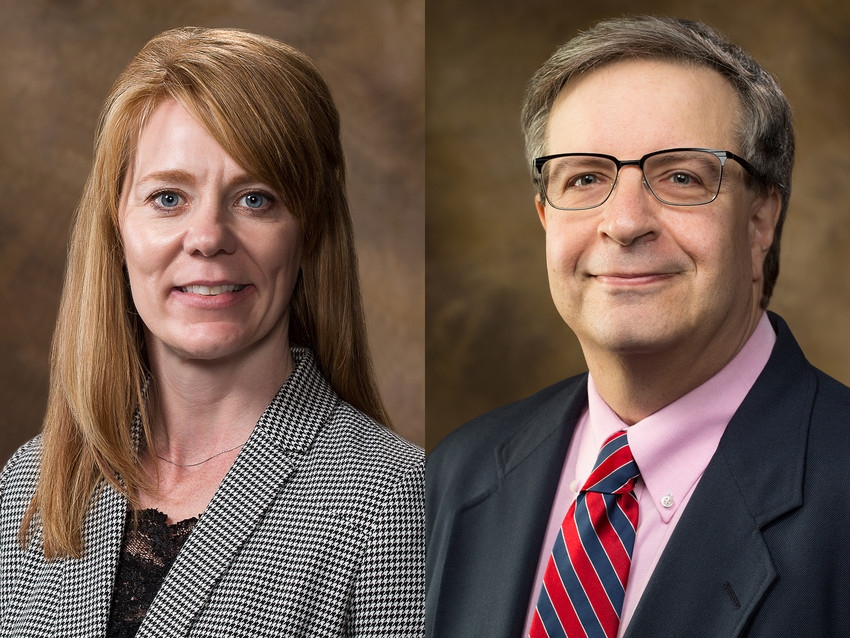FAYETTEVILLE, Ark. – Political science researchers have found that the number and amount of small individual campaign contributions during presidential primaries has increased substantially since 2000, while medium and large contributions declined.
The Bipartisan Campaign Reform Act of 2002, commonly known as the McCain Feingold Act, raised the limit on individual contributions from $1,000 to $2,000, and allowed the limit to be indexed for inflation. At the same time, the $250 threshold to receive matching funds on contributions remained the same. This raised concerns that candidates would shift their focus from small contributors, who give under $200, to large contributors who could donate the maximum amount.
Karen Sebold, clinical assistant professor of political science, and Andrew Dowdle, professor of political science, looked at the number and size of contributions during the “invisible primary” phase of presidential primaries — the year leading up to the Iowa caucus each election cycle — from 2000 until 2016, to test the hypothesis that the McCain Feingold Act led to a greater emphasis on large donations. They explained that the role of campaign contributions is especially important during this phase because candidates who raise the most money during this time tend to be more successful. Their findings will be published in an upcoming issue of the Election Law Journal.
The researchers found that small contributions rose for both Democrats and Republicans over this time period and medium and large contributions fell. The total number of small contributions rose from 55,000 in 2000 to more than 566,000 in 2016. In the 2012 and 2016 primaries, small contributors were the greatest source of individual support.
“This is surprising and counters our expectations about the increase in the contribution limits,” the researchers said.
The researchers concluded that these findings raise new questions about the role of small, medium and large donors in primary elections, especially considering the recent rise of super PACs, which do not have limits on the amount of money they can donate to campaigns.
About the J. William Fulbright College of Arts and Sciences: Fulbright College is the largest and most academically diverse unit on campus with 19 departments and more than 30 academic programs and research centers. The college provides the core curriculum for all University of Arkansas students and is named for J. William Fulbright, former university president and longtime U.S. senator.
About the University of Arkansas: The University of Arkansas provides an internationally competitive education for undergraduate and graduate students in more than 200 academic programs. The university contributes new knowledge, economic development, basic and applied research, and creative activity while also providing service to academic and professional disciplines. The Carnegie Foundation classifies the University of Arkansas among only 2 percent of universities in America that have the highest level of research activity. U.S. News & World Report ranks the University of Arkansas among its top American public research universities. Founded in 1871, the University of Arkansas comprises 10 colleges and schools and maintains a low student-to-faculty ratio that promotes personal attention and close mentoring.
Topics
Contacts
Karen Sebold, Clinical Assistant Professor of Political Science
J. William Fulbright College of Arts and Sciences
479-575-3125,
Camilla Shumaker, director of science and research communications
University Relations
479-575-7422,
